What Does It Mean to Be a Human Being?
Authors Seek Answers to Life's Biggest Existential Questions
Red Path Zen, founded by Roshi Duncan Sings-Alone, brings together Native American and Zen Buddhist teachings, practice, and ceremony. At each sangha, Roshi Sings-Alone prays that it be revealed to each of us what we need to be a “human being.” On the surface, it’s a simple request, but what does it mean to be truly, fully human? Each of these eight books illuminates an aspect of what is needed for full humanity: to love and be loved; to be at home in our body; to know who and what we are; to nourish and care for ourselves; to know, speak, and live our truth; to find our place in a community of mutual honor and respect; to find a way to serve; and to know that our lives have meaning beyond their short span. They help us understand and honor what it means to be fully alive in these glorious bodies made of stardust and infused with the very breath of God.
The Ground of Love and Truth
Reflections on Thomas Merton’s Relationship with the Woman Known as “M”
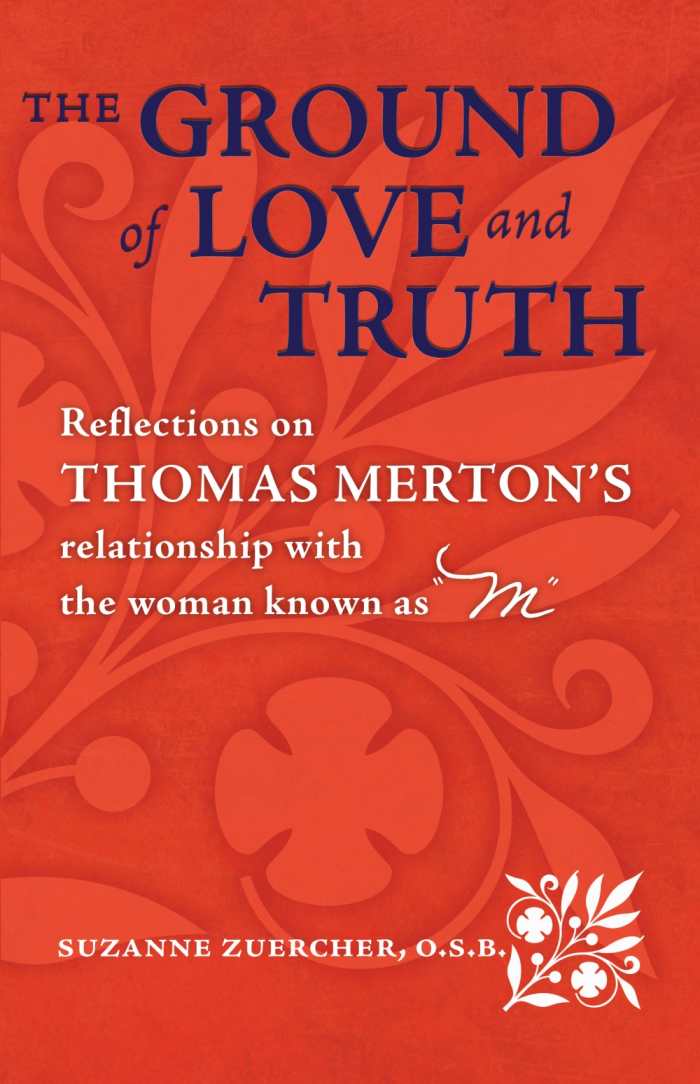
Suzanne Zuercher
ACTA Publications / In Extenso Press
Softcover $14.95 (118pp)
978-0-87946-997-9
Buy: Local Bookstore (Bookshop)
Suzanne Zuercher, a Benedictine nun, was awakened one night with these words in her mind:
It is impossible for the human heart
to be opened from outside;
and then someone comes along
and does just that.
These words provided the impetus for Zuercher—whose previous book on Thomas Merton (Merton: An Enneagram Profile) proved to be a highly intuitive study of one of the most significant religious figures of the twentieth century—to set aside her reticence and write this intimate portrait of a spiritual giant whose journey to become a “complete human being” involved, surprisingly, the love of a woman. This love, Zuercher believes, “more than any other person or any other experience … brought the spiritual master to embrace the fullness of his humanity.”
Bringing her own experience as a monastic, psychotherapist, and spiritual director to her task, Zuercher creates a sensitive portrayal of Merton’s struggle to reconcile his love for a woman twenty-five years younger than he with his vows of celibacy and commitment to monasticism. Based on his journal, Learning to Love, published over twenty-five years after his accidental death, Zuercher’s book reveals just how wounded and vulnerable—how human—Merton really was, and how, near the very end of his life, he came to see that “the ground of love and truth lies not in the abstract but in the physical reality of other human beings.”
KRISTINE MORRIS (February 27, 2015)
Embracing the Body
Finding God in Our Flesh and Bone
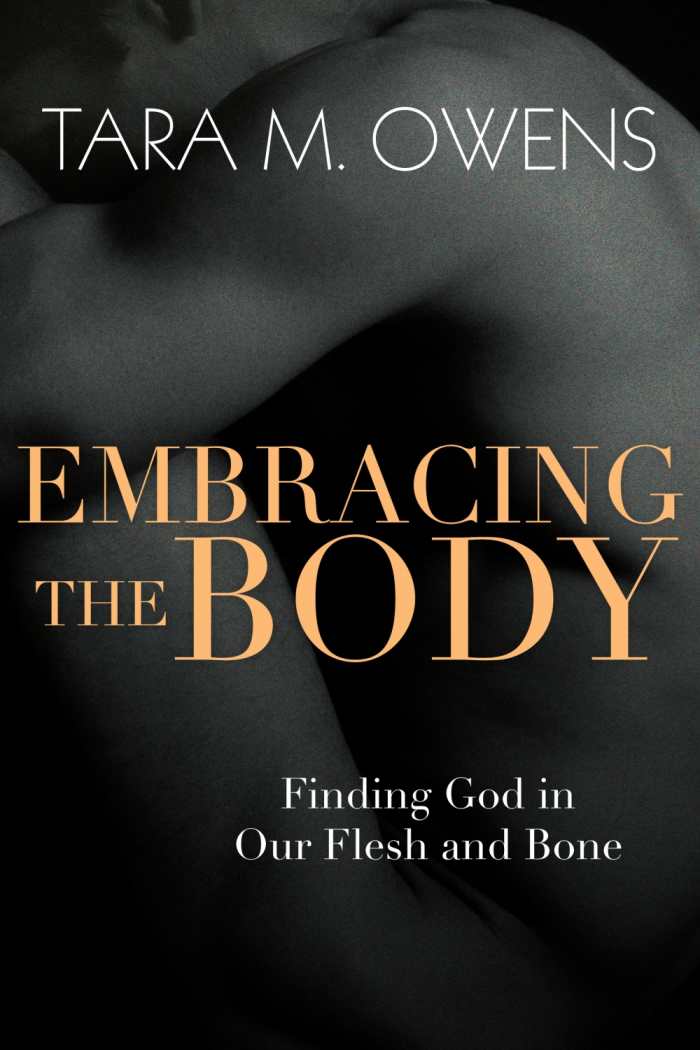
Tara M. Owens
Intervarsity Press
Softcover $17.00 (240pp)
978-0-8308-3593-5
Buy: Local Bookstore (Bookshop)
With that first breath of God into the dust of the earth, we have been “tied tight, held, commingled with the sand and the stars,” writes Tara M. Owens. “And we’ve been running from this awareness ever since, not wanting to admit that no matter what we do, no matter how hard we try, we must always come back to the crumbling and quotidian, the unglamorous and ashy. Imperfect and holy at the same time, placed somewhere between animal and angel, we struggle with the fact that our bodies are rarely what we would have them be. Subject to decay, and finally death, the body may be a source of pain and conflict, frailty and dependence, and sometimes, shame.”
Owens, a certified spiritual director and senior editor for Conversations Journal, addresses the disconnect most of us, and our churches, experience between ourselves and the physical world around us, even though it is in the body that heaven actively meets earth.
Through a gentle, compassionate exploration of our thoughts and feelings about our bodies, enhanced with exercises for reflection, Owens helps us to learn what it means to be at home in our own skin and sensitive to the body’s innate wisdom.
“We may not be transformed into the world’s ideal of physical beauty,” she writes, “but we will find ourselves reflected in the eyes of the One who finds us so alluring that he left the heavenly realms to be with us, the One whose very breath sustains this figure of dust and dreams.”
KRISTINE MORRIS (February 27, 2015)
The Way of Tenderness
Awakening through Race, Sexuality, and Gender
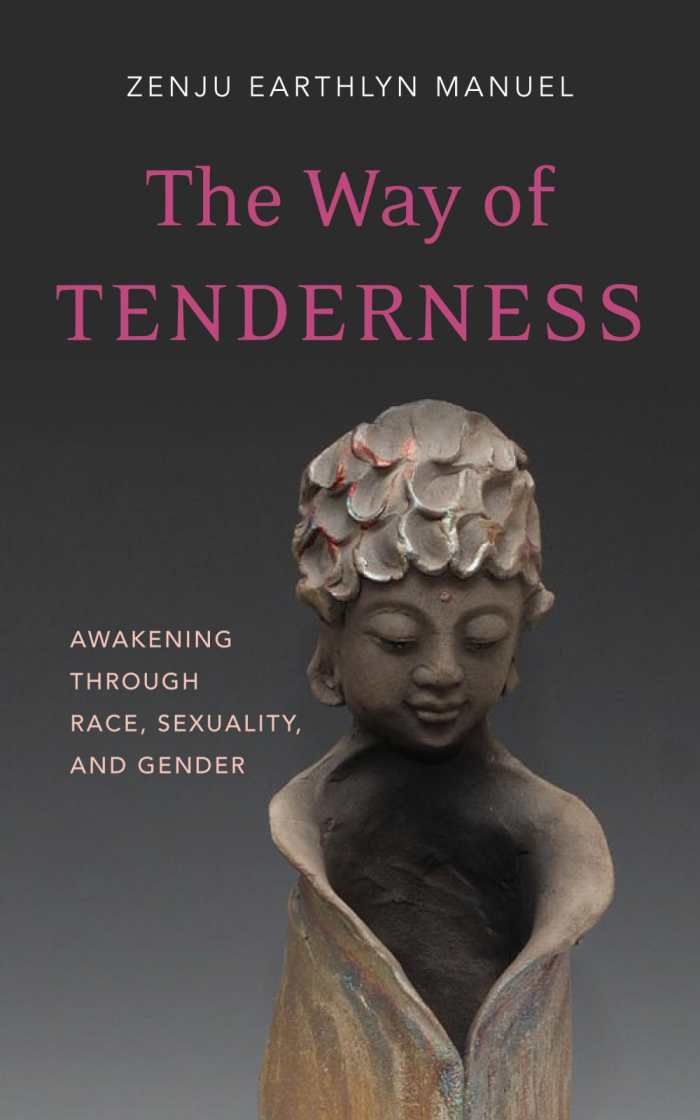
Zenju Earthlyn Manuel
Wisdom Publications
Softcover $15.95 (144pp)
978-1-61429-125-1
Buy: Local Bookstore (Bookshop)
Rev. Zenju Earthlyn Manuel, PhD, is a Soto Zen priest and guiding teacher at Still Breathing Meditation Center in East Oakland, California. The author of Tell Me Something about Buddhism and contributing author to several books including The Hidden Lamp: Stories from Twenty-Five Centuries of Awakened Women, she is also a lesbian and a black woman who brings her unique perspective and the wisdom forged of personal experience to bear on the topics of race, sexuality, and gender. Upon entering the Buddhist path, Manuel came face-to-face with her own heartache at having been discriminated against throughout most of her life. “I could seek spiritual or other professional guidance around my personal heartache,” she writes. “However, I felt the healing could not be complete without a collective attention to systemic suffering that is at the root of the heartache.”
The Eightfold Path, according to Manuel, cannot be practiced “without understanding suffering as systemic and as a collective human experience. Therefore, it cannot be practiced without attending to the suffering of classism, racism, sexism, homophobia.”
Based on her own journey of healing, Manuel illuminates Buddhist practice as “a path so expansive that it includes not only our own suffering, but also that of others.” To heal the wounds of those who have been subject to a “systematic withholding of love” on account of their differences, the path must be one of welcome, warmth, and compassion.
KRISTINE MORRIS (February 27, 2015)
From Saul to Paul
The Road to Apostleship
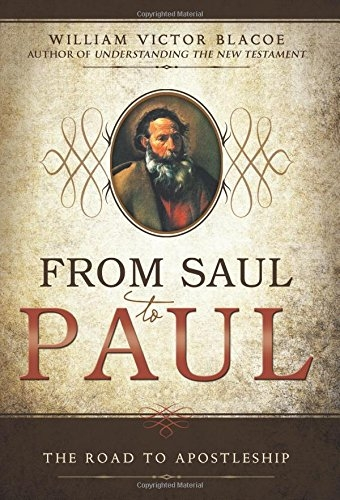
William Victor Blacoe
Cedar Fort
Softcover $16.99 (272pp)
978-1-4621-1468-9
Buy: Local Bookstore (Bookshop)
William Victor Blacoe follows Paul’s life from childhood to his execution in his sixth decade, placing it within the wider cultural, political, and religious context of his time—an era not unlike our own, marked by clashing cultures and religions and populated by passionate and volatile people. In that world, Saul of Tarsus, a Jewish boy and Roman citizen, grew into a mighty persecutor of Christians, only to be felled from his horse and struck temporarily blind by the power of the risen Christ. Transformed by this encounter into a fervent believer, he gave himself fully to spreading the “good news” of Jesus to all who would give him a hearing, despite being derided, whipped, and stoned for his message.
But why was this man so driven? What caused Saul, an unimposing figure with a tendency to illness, to take on the Roman form of his name and become a messenger whose words of a new life in Christ still impact the world today? Blacoe’s comprehensive and well-annotated biography illuminates this transformation and the reason for Paul’s dedication to his message of salvation. More than that, he brings to the fore how one shining example of faith in action can transcend time and place to inspire generations unknown.
KRISTINE MORRIS (February 27, 2015)
How to Love Your Neighbor without Being Weird

Amy Lively
Bethany House
Softcover $14.99 (208pp)
978-0-7642-1700-5
“I wanted to love my neighbor, but I didn’t know how,” writes Amy Lively. As a Christian called to follow Jesus’s directive to “love your neighbor as yourself,” she felt guilty that she, like so many of us, didn’t even know the people who lived in her neighborhood.
Lively, a teacher, writer, speaker, and founder of Neighborhood Café Bible Study ministry and website, admits that the thought of going out into the world to make spiritual connections can be daunting. She diligently scoured the scriptures, looking for a way out of having to meet her sometimes scary (like the ones who’d named their dog Demon), sometimes seemingly uninteresting, neighbors. Finding no way out, she began to knock on their doors with an invitation to share a cup of coffee.
Lively found her life immeasurably enriched by her encounters, and although her book is Bible-based and directed at Christian women who would like to establish neighborhood Bible study groups, those of other faiths, and even the nonreligious, can use the practical and loving suggestions she offers to begin opening their doors and hearts to their neighbors. Following her tips, you’re likely to find, as she did, that while people may walk into each other’s homes as strangers, they walk out as friends.
KRISTINE MORRIS (February 27, 2015)
Signs
Seven Words of Hope

Jean Vanier
Paulist Press
Softcover $14.95 (144pp)
978-0-8091-4872-1
Buy: Local Bookstore (Bookshop)
“It can be hard for a believer to be happy in the face of all that is going on in the world today,” writes Jean Vanier, a Canadian philosopher, humanitarian, and founder of L’Arche, a Christian community in which people with severe intellectual disabilities live alongside those who care for them in mutual honor and respect. In Signs, Vanier shares how his nearly fifty years at L’Arche has taught him to accept his own vulnerability. He suggests that walking the paths of the seven “signs”—humiliation, awakening, encounter, authority, community, vulnerability, and mystery—can rekindle a radical hope for ourselves and the greater world.
Vanier says that what most of us are seeking is joy, a joy that is “capable of transcending the fear, anxiety, grief, and the overwhelming exhaustion so many feel as they struggle to hold together all the fragments of their lives.” That joy, he says, can be found in communities where people actively love each other, celebrate together, and experience a feeling of belonging despite their differences. In these communities, the weak learn their deepest human value and the strong discover the tenderness in their own hearts and are transformed into “real people,” capable of true compassion.
With this book, Vanier reveals how, gently and beautifully, people with a disability can bring us to the heart of the Christian mystery.
KRISTINE MORRIS (February 27, 2015)
A Story Worth Telling
Your Field Guide to Living an Authentic Life
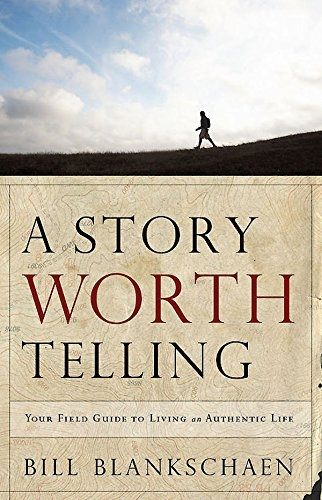
Bill Blankschaen
Abingdon Press
Hardcover $16.99 (208pp)
978-1-5018-0008-5
Stories enhance our experience of life. We love to see how others respond to challenges and triumph over difficulties, and we pretend that we are doing the same. But what if we didn’t have to “borrow” someone else’s adventure? What if we could create a life so significant that it would be told and celebrated in places and times beyond our imagining?
Bill Blankschaen, a writer, speaker, and former principal and director of The Center for Cultural Leadership Development, has been teaching FaithWalkers material for over seventeen years. In A Story Worth Telling, he shows us how walking by faith can reveal our most authentic calling.
“Faith,” he writes, “is not religion, and not belief in a fairytale. It is doing what you believe to be true, often in spite of what you see, sense, or feel. … Faith focused on God stands vigilant, poised to answer his call to travel across the world or walk across the room. Depending on the circumstances, either one can be terrifying.”
Blankschaen shakes up the dailiness of our walk through life with stories and questions that are at once pointed and profound. Asking ourselves, “could someone identify your dreams by examining your life?” can wake us up enough to see how we may have been settling for our “shadow calling”—something that looks enough like our true calling to make us feel better about not following our dreams. Blankschaen offers the alternative: making our lives a story worth telling by walking with extraordinary faith.
KRISTINE MORRIS (February 27, 2015)
Kristine Morris

